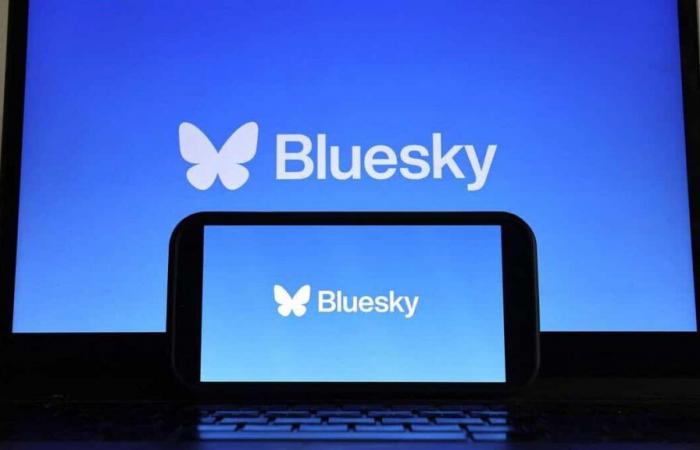Seen as a refuge by those disappointed with but here with some innovations.
Specializing in tracking down influence operations, the @antibot4navalny collective revealed the scale of “Matriochka” (“Russian Doll”) a year ago. In recent weeks, this collective has accumulated indications of a response in the young American network Bluesky, comprising more than 13 million users.
Analyzed by AFP, these data show dozens of publications with a similar modus operandi, consisting of calling on media to ask them to verify fake news.
With a novelty: in Bluesky, in addition to sometimes imitating content from the media, we note that certain posts use artificial intelligence (AI) to usurp the identity of universities.
Basically, the objective always seems the same: to present Russia in a favorable light, while criticizing Western aid provided to Ukraine and often castigating Emmanuel Macron, a favored target.
The accounts used present all the characteristics of pro-Russian software robots (“bots”) – these false profiles used to artificially increase the visibility of publications –, Eliot Higgins, the founder of the Bellingcat collective, specializing in source investigations, said in December. open.
Hypertrucages
Thanks to data collected by @antibot4navalny, AFP observed around fifty publications related to “Matriochka”.
Most are content to republish messages already present in
It is possible that “the operation attempts to test its effectiveness in terms of scope” before other offensives, observes Valentin Châtelet, from the Atlantic Council’s digital analysis laboratory, interviewed by AFP.
By usurping the identity of universities, the goal may be to “establish arguments of authority”, “by adapting to the Bluesky audience”, analyzes Peter Benzoni, a specialist in manipulation of information from the Alliance for Securing Democracy, within the German Marshall Fund (GMF).
In a doctored video, a professor from the University of Aix-Marseille evokes “numerous errors in the organization of the Olympic Games” linked to the difficulties of “the French economy”. Because of “sanctions against Russia,” the caption suggests.
This is a hyperfaking (deepfake), or here content whose audio has been manipulated: AFP found the original video broadcast at the end of October on the University’s Instagram account. The law professor made no mention of the French economy and simply took stock of the year 2024 in his university department.
-Dozens of other videos viewed use a similar staging with an expert facing the camera, an image accompanied by the logo or name of the university. After a few sentences, illustrations follow, drawn from media or image banks.
Another example: in shots of the campus of the English University of Sunderland, students and teachers allegedly give their opinions on Russia, gratified with laudatory adjectives.
Again, this is manipulation. In the original video, found by AFP, there is not the slightest allusion to Russia.
“Industrialized” tricks
“This indicates that the campaign has succeeded in industrializing its voice-over production [hors champ] faked, which echoes a common trend in various disinformation operations originating from Russia,” analyzes Valentin Châtelet.
The expert refers in particular to influence campaigns like “Doppelgänger”, which is based on copying Western media websites.
The @antibot4navalny collective shared a list of accounts spreading fake news in Bluesky, inviting Internet users to report them.
Since then, AFP has noted that the majority of the publications singled out had been deleted from the platform, which encourages its users to report any problematic content, thus claiming an active commitment against disinformation.
In 2023, its team of moderators claims to have processed more than 358,000 reports.
According to Valentin Châtelet, the social network, which did not respond to requests from AFP, “is aware of the problem and knows that the community of fact checkers and open source researchers is already investigating this content and reporting it in order to to prevent its virality.
Its efforts are “rather effective in limiting the operation” at present, according to the expert. But he points out that these actions remain “very reactive” and that Bluesky must still prove that it can “proactively” dismantle this ongoing operation.






